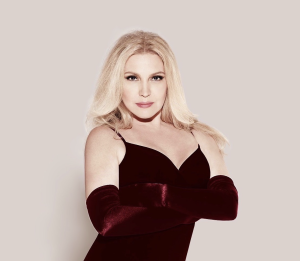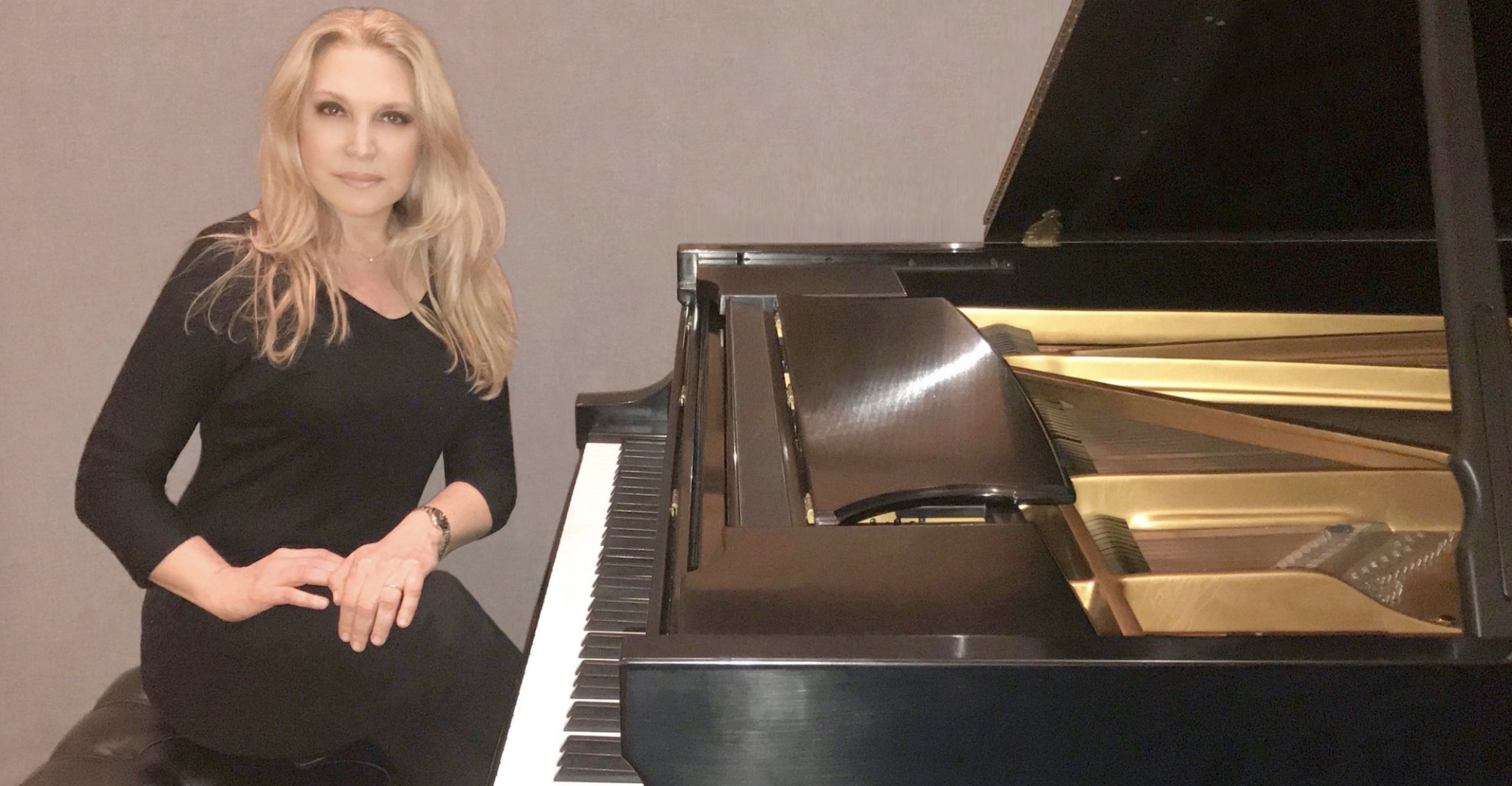Brazil’s Eliane Elias at the Palladium
Words by Kyle Long
The Grammy-winning pianist and vocalist Eliane Elias is a master of two musical worlds. Elias rose to prominence as a teenager in the late 1970s playing bossa nova in her birth country, Brazil. During the ‘80s, Elias relocated to New York, where she gained notoriety in the straight-ahead jazz scene.
Elias has collaborated with renowned musicians in both genres. In Brazil, Elias performed with bossa nova icons such as Vinicius de Moreas, and Antônio Carlos Jobim. In the United States, she’s recorded with jazz stars including Herbie Hancock, and Chick Corea.
Classical music has also played a significant role in Elias’ musical development. During the 1980s, Elias studied at New York’s prestigious Juilliard School. Elias’ work as a classical pianist can be heard on her 1993 album for EMI Classics. That record was titled “On the Classical Side”, and features Elias’ superb interpretations of music by Bach, Ravel, Chopin, and the Brazilian composer Heitor Villa-Lobos.
Elias has also dabbled in composing classical works, as heard on opera vocalist Denyce Graves’ 2003 recording “The Lost Days: Music in the Latin Style”.
Eliane Elias will be performing in Central Indiana on Sunday, November 20 at the Palladium. Elias recently discussed her rich musical history with Classical Music Indy contributor Kyle Long.
Kyle Long: You started playing music professionally as a teenager in São Paulo. You were working alongside some of the most significant figures in Brazilian culture. At age 17 you began performing with Vinicius de Moraes and Toquinho, who are both giant figures in Brazilian music. How did you happen to join their group at such a young age?
Eliane Elias: I was playing in a jazz club with my trio. I looked up and they were sitting in the audience, and I said, “Oh my God!” They approached me at the end of the performance and said, “Would you like to join us? We have international tours, come join us.” Of course, I did join them. I worked with them for three years, until Vinicius passed away.
It was fantastic. I got to share bossa nova with the real creators of this language. It was something so special. Vinicius was one of Brazil’s greatest lyricists and poets. He was also a diplomat, and he had a view of life that was so special.
Long: So they heard you performing in a club one time and asked you to join their band?
Elias: Yes.
Long: That’s incredible. You must have been extraordinary!
In 1979, Toquinho and Vinicius recorded an album together called “10 Anos De Toquinho & Vinicius”. That album featured a remarkable ensemble of musicians. The father of bossa nova, Antônio Carlos Jobim, played piano on that record, and the celebrated singer-songwriter Chico Buarque was featured as a guest vocalist. You had the opportunity to play on that album. What was it like recording this album as a teenager with these unforgettable figures in music history?
Elias: Oh, it was great. I think I appreciate it even more now than I did then. I was young, and opportunities were coming at me fast and furious. I had the best gig that a musician could have. These musicians were at the top of their game. You can’t ask for more than that. But, behind all of that, I always had a wish to play jazz. So I kept in my mind the idea of moving to New York. So after Vinicius de Moraes passed away, I moved.
Long: You arrived in New York in 1981, and you began studying music at the Juilliard School.
Elias: I did not come to New York to study. I came to New York because I wanted to play jazz. I studied at Juilliard because I wanted to develop my technique, so I could execute all the ideas I heard in my mind. I did not study at Juilliard with the intention of becoming a classical concert artist, although I did record an album of classical music
Long: You gave up a lot leaving Brazil, you were playing with the top musicians in the country. You had to start from zero in New York. What was so strong about the pull of jazz music that you were willing to take this chance?
 Elias: When I look back, I was a very courageous girl. I didn’t know anyone in New York. I didn’t even speak English. I left everything behind. I remember my father being against the idea. I remember him telling my mother, “Look, if this girl does well in New York, we’ll never see her again. If she fails, she’s going to come back with frustration.” But my mother was so sure of it, she said, “Let her go.”
Elias: When I look back, I was a very courageous girl. I didn’t know anyone in New York. I didn’t even speak English. I left everything behind. I remember my father being against the idea. I remember him telling my mother, “Look, if this girl does well in New York, we’ll never see her again. If she fails, she’s going to come back with frustration.” But my mother was so sure of it, she said, “Let her go.”
I came to New York with a couple of suitcases and a demo tape. I started showing up at clubs, and jam sessions. People started talking about me, and the word went around New York. It wasn’t long before I was working with great musicians. I joined the group Steps Ahead, and that was the beginning of my career in jazz.
Long: At what point did you start incorporating Brazilian elements into your work as a jazz artist? Those aspects of your playing seem very integrated now, but they weren’t always present in your early work in the United States.
Elias: When I moved to New York, I saw some Brazilian musicians that were working on the fringes of the scene. People would say, “Oh, that’s the Brazilian crowd.” So I purposely did not play Brazilian music. I’m sure that some elements of Brazilian music showed up in my playing, but I was focused on playing straight-ahead jazz. It wasn’t until I firmly established myself as a jazz player, that I felt comfortable bringing in more elements of Brazilian music.
Over the years, it all became one. Now I do some Brazilian albums, and some straight-ahead jazz albums. I do some instrumental records, and some vocal records. Depending on the project, I go more towards one or the other, but they’re all incorporated into what I do.
Long: You’ve recorded several albums featuring classic standards from the American songbook. The venue where you’ll be performing in Indiana, The Palladium at The Center for the Performing Arts, is home to Michael Feinstein’s Great American Songbook Foundation. With that in mind, I’m curious why it’s been important for you to spotlight this repertoire so prominently in your work?
Elias: This is music that I grew up with. This is music that I related to. I loved the harmonies, and the melodic characteristics. If you think about the American songbook, it relates so well to the bossa nova songs that were being created in Brazil during the ‘60s, and ‘70s.
When I arrived in New York, you could name any standard and I could play it. I probably knew more than the typical American kid who was raised with jazz. I was so immersed in the music, it was a part of me.
Long: Your 2021 album “Mirror Mirror” recently won a Grammy for “Best Latin Jazz Album”. “Mirror Mirror” features your duet piano recordings with Chick Corea and Chucho Valdés. I’ve read that these were the last recordings Chick Corea made before his death in February of 2021. Is that correct?
Elias: They were the last studio recordings that he made. I met Chick Corea when I was 20 years old. He was performing in Brazil. After the concert I got to meet him. There was a piano in the lobby of his hotel, and we stayed up until 7 in the morning playing music together. That was the beginning of our musical relationship.
After I moved to New York, he was writing letters to the immigration office to try to help me stay in this country with a Green Card. We saw each other for years on the road, and we always discussed the idea of doing something together, but it didn’t happen until “Mirror Mirror”. I’m so grateful that we had the opportunity to record together.
Long: Finally, I want to mention your latest album “Quietude”, which is a return to bossa nova music, and prominently features your work as a vocalist. “Quietude” offers a deep exploration of Brazilian music, and includes guest appearances from the late guitarist Oscar Castro-Neves, and the singer-songwriter Dori Caymmi. You also perform music by Dori Caymmi’s father, the revered Bahian songwriter Dorival Caymmi.
Elias: I love Dorival Caymmi’s songs. Jobim used to say that Dorival Caymmi was the best Brazilian composer ever. I love the music and people of Bahia. A lot of great artists have come from Bahia, and that includes Dori Caymmi. He’s a great composer, and arranger, and he has a beautiful voice.
This music, quiet music, it’s something that speaks to me. This music is calm, and peaceful. I’m happy to see how it’s reaching other people. We just reached the number 1 spot on the Billboard Traditional Jazz music chart.
A lot of people try to play the bossa nova, but we have the top musicians on this record. The sound of this recording is beautiful, and there’s a groove that we hit with the guitar and voice. The piano takes a backseat. It’s very sparse, just like the bossa nova I love.







Leave a Reply